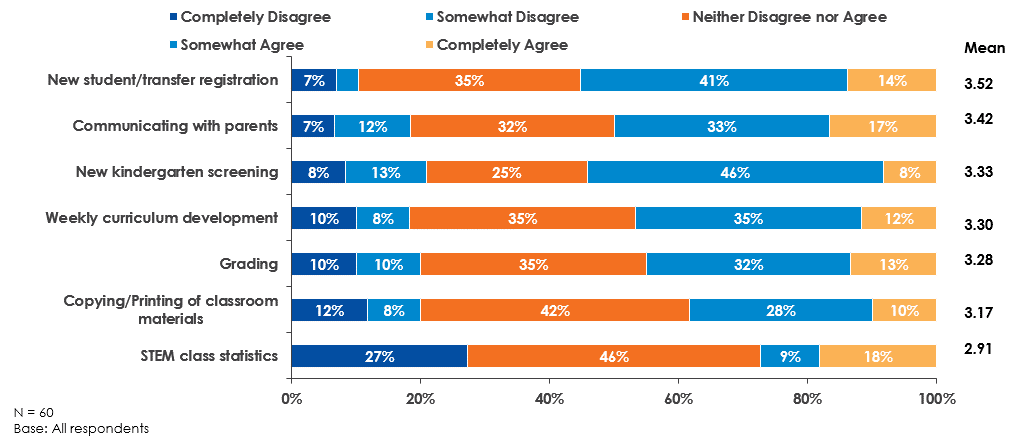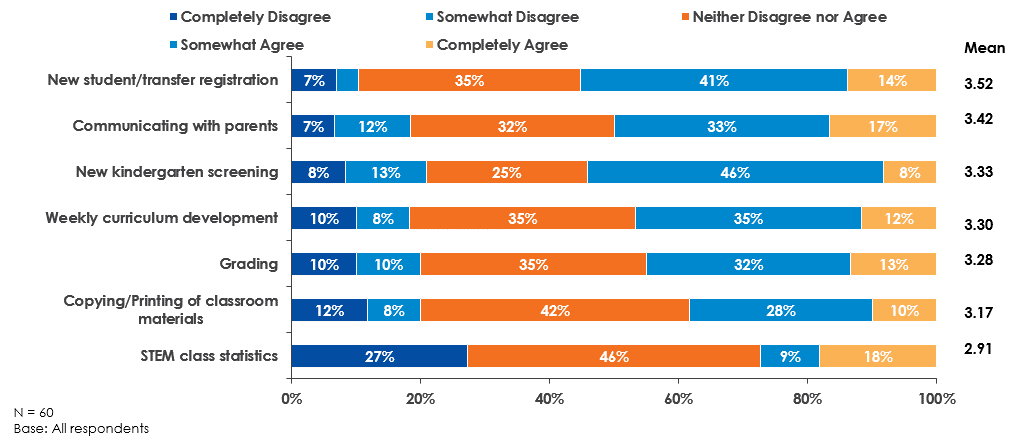Given the widespread use of mobile devices in personal and work life, it doesn’t seem farfetched to imagine greater use of this technology within K-12 classrooms. In fact, many classrooms are now investing in mobile technology for teaching and administrative purposes. This blog post will take a look at this trend, including several factors spurring interest in mobile education technology.
Mobile technology provides convenience, speeds up tasks
One huge benefit to mobile technology is that it is portable. Tablet computers, and smartphones in particular, can be easily carried or placed in a pocket—enabling them to be used in virtually any location.
This provides convenience to educators, helping explain why they are more likely to agree than disagree that mobile technology improves K-12 education processes. Furthermore, immediate access to a mobile device speeds up the completion of tasks.
Would you agree or disagree that the processes could be improved with mobile technology?
(1 = completely disagree; 5 = completely agree)





Source: Business Process Automation: Education K-12 Survey
(Keypoint Intelligence-InfoTrends, 2017)
Mobile technology opens up learning possibilities
When students have access to mobile devices and associated mobile apps, they have access to a wide range of content they might not otherwise encounter. For example, they can view information that’s updated in real time, available in a variety of languages, and sourced from all corners of the world.
While this information could theoretically be viewed on a desktop PC as well, there are typically not many of these in a classroom. A classroom is more likely to have access to multiple mobile devices due to their size, portability, and cost.
Mobile technology gives students technical skills
The skills required for student success are shifting as technology evolves. Once, schools prioritized typing on a traditional keyboard, but this need is largely being replaced by typing (or swiping) on a mobile device touchscreen or voice-controlled input.
In order for students to excel at new technologies, they need to be using them. They will gain advantages over students who lack access to these devices (and associated software), making them betting prepared for college and ultimately a career.
Summary
Mobile technology in the form of devices and software can truly improve processes from a convenience, speed, and learning perspective. Teachers can complete tasks more efficiently, while students have the opportunity to acquire a vast array of content and technical skills that can serve them throughout their personal and work lives.
